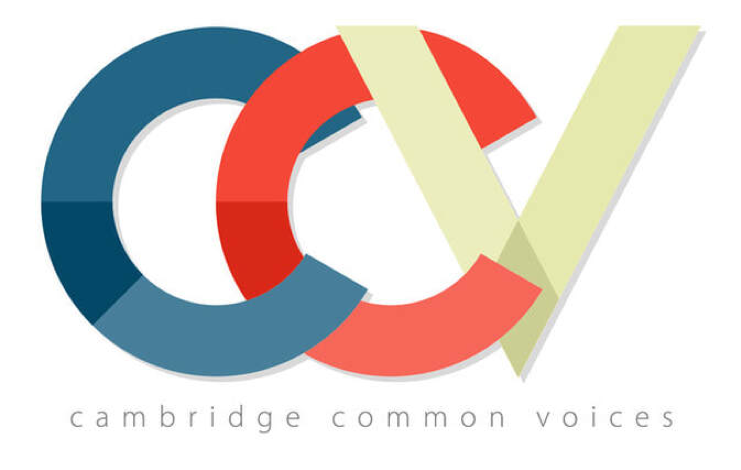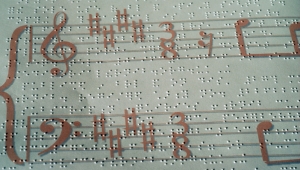Dear AMS Colleagues,
I am writing to invite you to join us at the annual meeting in Boston for the Music & Disability Study Group’s Evening Panel Session, entitled “Musicology and Universal Design: Claiming the Consonant, the Dissonant, and the Resonant,” on Thursday October 31 from 8:00-10:00 p.m. in Grand Ballroom A. I am thrilled to report that the panel not only features live musical performance, but that live American Sign Language interpretation will be provided for the duration of the panel and question & answer period, courtesy of Harvard University!
The panel will begin with an interactive performance by the Cambridge Common Voices, under the creative leadership of conductor Andrew Clarke. The ensemble is a community chorus and creative partnership between Harvard College and the Threshold Program at Lesley University, a transition program for young adults with diverse learning challenges. Rooting its work in Universal Design for Learning (UDL), Cambridge Common Voices reimagines concepts of choral music through the lens of disability, creating new pathways that challenge established norms of musical value, expertise, taste, and social hierarchies by affirming the creative agency of each singer, and democratizing the creative process.
The second half of the panel will feature three paper presentations. Abby Anderton (CUNY, Baruch College) will discuss how the principles of UD can be used in tandem with those of Open Educational Resources (OER) to create a more inclusive, equitable music history curriculum. Floris Schuiling (Utrecht University) and Pedro Garcia López de la Osa (UC Riverside) separately investigate the design and use of music notation for visually impaired musicians in the Netherlands and Spain, respectively. Both presentations reveal the extent to which standardization of blind musical notation has been fueled by nationalism at the expense of accessibility.
Note that the panel will be livestreamed on YouTube (link TBA). Official live tweets can also be followed using our Study Group Twitter handle: @amssmtdismus. For your convenience, the complete panel abstract is copied below. We look forward to seeing many of you at what promises to be a dynamic and enriching event!
On behalf of the Music & Disability Study Group, I wish to thank you for your ongoing support.
All my best,
Jessica Holmes
Study Group Chair
This slideshow requires JavaScript.
Evening Panel Abstract
The concept of “Universal Design” (UD), coined by architect Ron Mace in 1996, figures prominently in current public discourse on disability as designers, architects, urban planners, and engineers aspire to create more inclusive spaces and objects that better accommodate the needs of all bodies. UD avoids stigmatizing and segregating bodies by striving for equity and flexibility of use, integrating accessibility into all stages of the design process, obviating the need for retrofits. Familiar examples include curb cuts, tactile paving, wheelchair ramps, and beeping crosswalk lights which render the built environment more accessible to those with physical and sensory disabilities, while Braille and closed-captioning facilitate greater access to visual and aural media. In higher education, the goals of Universal Design for Learning (UDL) “stand in direct contrast to the often nostalgic (and ultimately hierarchical) expression of normativity we see in the repeated calls to re-embrace physical books, pens, and paper,” writes disability scholar and advocate Rick Godden.
UD has its drawbacks, however. As designer-scholar Graham Pullin argues, the types of multimodal interfaces, spaces, and multifunctional platforms sometimes designed to “accommodate as broad a range of uses as possible” risk further excluding by virtue of their complexity. “Different people ultimately have different needs and desires irrespective of their abilities,” writes Pullin (2015). Others lament that UD often masquerades as a totalizing embrace of human diversity, overshadowing the ways accessibility is also race- and class-bound, and constructed along gendered lines as much as it is contingent upon ability. Godden contends, furthermore, that ultimately, “eccentric and extraordinary bodies have the potential to puncture the illusion of the universal that UD champions, disorienting and, more importantly, reorienting how we conceive of access and equality” (2016).
Like the built-environment, Western music encodes what Blake Howe has described as a “corporeal finitude” through everything from scores to instrument design in ways that “enable some bodies, while disabling others.” Our session probes the consonances, dissonances, and resonances of UD as it is mobilized aurally, visually, and through the multiple ways we feel and make sense of music.
Andrew Clark (Harvard) will lead an interactive performance and discussion by the Cambridge Common Voices, a newly launched neurodiverse vocal ensemble established through a partnership between the students of Harvard University’s “Music and Disability” course, and students from the Threshold College Inclusion Program for diverse learners at Lesley University. Rooting its work in UDL, Cambridge Common Voices reimagines concepts of choral music through the lens of disability, creating new pathways that challenge established norms of musical value, expertise, taste, and social hierarchies by affirming the creative agency of each singer, and democratizing the creative process.
Abby Anderton (CUNY, Baruch College) will discuss how the principles of UD can be used in tandem with those of Open Educational Resources (OER) to create a more inclusive, equitable music history curriculum. OER courses rely solely on materials provided at no cost to the student, thereby removing economic barriers to student learning, like expensive textbooks or costly online platforms. Floris Schuiling (Utrecht University) and Pedro Garcia López de la Osa (UC Riverside) separately investigate the design and use of music notation for visually impaired musicians in the Netherlands and Spain, respectively. Schuiling investigates the recent decline in Braille music literacy in the Netherlands as it corresponds to changes in educational policy, a decrease in library resources, and the rise of audio devices. Since the 1990s, Dutch libraries for the blind have been producing “spoken scores,” which have found some degree of popularity, especially amongst late-blind musicians, but have encountered other obstacles toward more widespread adaptation. Similarly, López de la Osa compares Gabriel Abreu’s 19th Century musicographic system for the blind as an alternative to Braille notation. In an effort to bring Spain into conformity with other countries, the Spanish National Organization of the Blind initiated a campaign to revert to Braille notation during the 1950s; yet Spanish blind musicians regard Abreu’s system as more accurate, precise, and convenient, both then and now. Both presentations reveal the extent to which standardization of blind musical notation has been fueled by nationalism at the expense of accessibility.

